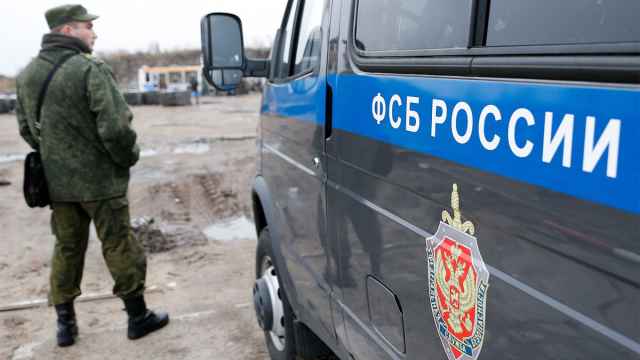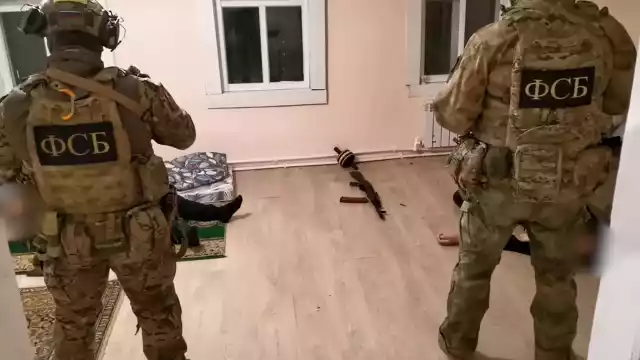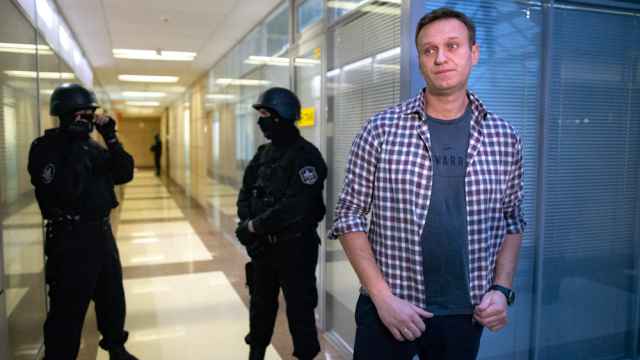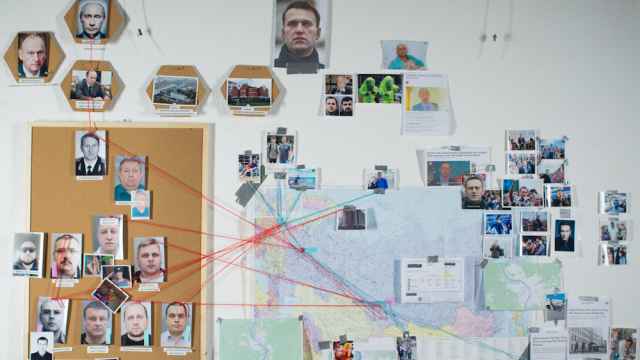Russia’s Federal Security Service (FSB) said it had identified a second suspect in the bombing attack that killed the prominent pro-war blogger Vladlen Tatarsky in St. Petersburg earlier this month, as it continued to link the act to the team of jailed Kremlin critic Alexei Navalny.
St. Petersburg resident Daria Trepova, 26, was detained on suspicion of terrorism the day after a statue she was filmed presenting to the blogger, exploded at a cafe on April 2.
According to Interfax, the FSB said Trepova had jointly planned the assassination with Ukrainian citizen Yuri Denisov.
“Denisov, born in 1987, transferred an explosive device disguised as a plaster bust of the military correspondent to her by ‘express delivery’ through an intermediary in Moscow,” the FSB said.
Denisov allegedly traveled from Kyiv via Latvia to Moscow in February, where he subsequently collected information on the “lifestyle and places frequented” by Tatarsky. The day after the assassination, Denisov fled to Turkey via Armenia, according to the FSB.
The Russian security agency said it planned to place Denisov on an international wanted list.
The FSB accused Ukraine’s special services and its “agents” among Russia’s exiled opposition of organizing the deadly attack, according to TASS.
The FSB also identified Trepova as “a supporter” of jailed Kremlin critic Alexei Navalny’s “ideology.”
Since the war began, Navalny’s close aides Leonid Volkov and Ivan Zhdanov had “repeatedly called for subversive activities to be carried out in Russia with the aim of changing the constitutional order,” the FSB said.
The agency also noted that Trepova’s lawyer, Daniil Berman, also represented one of Navalny’s regional coordinators, a member of the activist punk band Pussy Riot, and the U.S. journalist Evan Gershkovich, who was charged with spying earlier this month.
While Russian officials claimed Trepova was an “active supporter” of Navalny, his representatives have denied any links to her or to the attack that killed Tatarsky.
Navalny’s close aides have instead charged that by suggesting a connection between their team and Trepova, the Russian authorities were laying the groundwork for further criminal charges to be pressed against the jailed opposition leader.
A Message from The Moscow Times:
Dear readers,
We are facing unprecedented challenges. Russia's Prosecutor General's Office has designated The Moscow Times as an "undesirable" organization, criminalizing our work and putting our staff at risk of prosecution. This follows our earlier unjust labeling as a "foreign agent."
These actions are direct attempts to silence independent journalism in Russia. The authorities claim our work "discredits the decisions of the Russian leadership." We see things differently: we strive to provide accurate, unbiased reporting on Russia.
We, the journalists of The Moscow Times, refuse to be silenced. But to continue our work, we need your help.
Your support, no matter how small, makes a world of difference. If you can, please support us monthly starting from just $2. It's quick to set up, and every contribution makes a significant impact.
By supporting The Moscow Times, you're defending open, independent journalism in the face of repression. Thank you for standing with us.
Remind me later.






